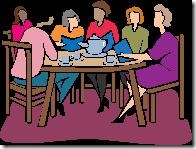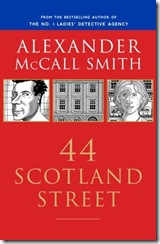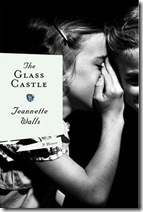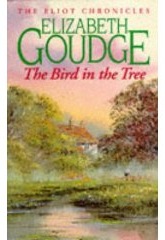Book reading is a solitary pastime. When I read, my mind leaves my surroundings and enters a world of mystery, travel, romance, exploration or enlightenment – wherever I want to go.
When I want to get away from it all, I take a book with me. Though I’m not one of them, I understand those commuting travelers who avoid conversations with other passengers by immersing themselves in written words so they don’t have to respond to those spoken.
A book requires no response; it’s not demanding, does not consider it rude if you close its pages in the middle of a sentence.
If it’s a good book, though, it can be akin to taking a vacation by yourself. You double your enjoyment when you share it with someone else.
 Book Club Envy
Book Club Envy
I always envied those who had the luxury of participating in a book club. I’d see notices about book club meetings in newspapers or the library, but somehow the time was never right.
Thanks to a good friend, I finally got to be part of one four or five years ago in Mississippi. “The Book Bunch” gathered at the back of a local restaurant once a month and discussed books over breakfast. When we moved to this smaller town, I was thrilled to find a group who met at the local library to share their reading experiences.
Why?
Many avid readers don’t see the point. Why be forced to read a book of someone else’s choice? Why bother with a book club?
Because of…
Gossip! Though we might not admit it, we get to “gossip” about fictional characters without guilt. We can conjecture about motives. We can decide whether or not they would be our friend, or as my friend Keetha phrases it, “the character I’d most like to have a drink with.” We can be openly critical and even self righteous.
After all, these are fictional characters. Mansfield Park’s Fanny Price won’t be hurt if I express my frustration with her reticence; Atticus Finch will not feel threatened if I declare my admiration for him; the Eliots of Damerosehay won’t even notice that I’m stalking them in sequels.
Revelations. More satisfying than the gossip, though, is our sharing of ideas and personal philosophies. We leave our own worlds behind and briefly travel together into a world of thought and imagination. The meeting is a safe place where, in the process of summarizing the plot, judging the author’s writing style, sharing our discoveries or disagreeing about whether or not it was worth reading, we also reveal our own quirks and foibles, political and religious views.
Getting Out of a Rut. If I chose every book our club reads, three out of four would be novels written by English women, with a story based somewhere in the British Isles or some other foreign land. The book club has introduced me to books and characters I’m certain I would never have met by myself. (This doesn’t mean I would recommend them all.)
Friendship. Reading the same book provides a gathering place for our minds. When we discuss a book – though we may have nothing else in common — we share an unspoken mutual appreciation, a special bond non-readers do not share.
It’s not always about the book, by the way. Sometimes one or more of us don’t even finish the book before the meeting, but we still show up. Don’t want to miss the gossip, even if it’s someone we don’t know!
Talk to me. Have you ever been a part of a book club? What was your experience? What would be your advice to someone wanting to start one?


 This is an amazing memoir, written with a lot of conversation and short chapter segments, which makes it very easy to read.
This is an amazing memoir, written with a lot of conversation and short chapter segments, which makes it very easy to read. About the Books
About the Books